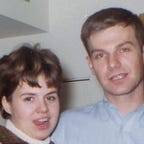Baseball and the Eiffel Tower
French Baseball History Part 3
Mash together a celebrity, a businessman and a promoter with an eye to the main chance and what do you get?
Answer: Albert Goodwill Spalding, baseball’s answer to P.T. Barnum.
Spalding made his name as a pitcher in the 1870s, breaking and making records with nearly every pitch he threw for the Boston Red Stockings (ancestors of today’s Atlanta Braves) and then the Chicago White Stockings, who were to become today’s Chicago Cubs. It should be pointed out that for much of the time he was his clubs’ only pitcher, but he also racked up an impressive lifetime batting average of .313.
In his spare time he and his brother set up a sporting goods company that was to become one of the world’s largest, A.G. Spalding Company. In retirement from active playing, Spalding acquired part ownership of the White Stockings, and that, combined with his sporting goods company, brought out his genius for promotion. “Let’s take this show on the road,” he decided.
And what a show it was: a baseball world tour that featured his own club, the reigning National League champions, and a collection of stars from the American League which he dubbed “the All-Americas.”
Included in Spalding’s entourage, unsurprisingly enough, was a reporter. So when the “boys of summer” danced the hula in Hawai’i and hit balls at the eyes of the Great Sphinx in Egypt, it made the news at home.
Waiting for them was the biggest show of all, the Universal Exposition of 1889 in Paris, an event designed to commemorate the centennial of the French Revolution. The whole world was going to be there, and Spalding was determined he and baseball would be, too.
He and his teams stepped off the train into a chilly, rainy Paris on March 2, 1889, but weather was not Spalding’s main concern. He needed to find a place to play and he needed to find it quickly. He settled on the Parc Aerostatic which had a couple of things in its favor: it could be closed off so businessman Spalding could charge admission and it was almost at the base of the great symbol of the Exposition, the nearly complete Eiffel Tower.
Spalding ran around the city inviting politicians, sportsmen, anyone he thought would add luster to the game.
The players, meanwhile, just ran around. It was Carnival season and the parties and nightclubs were in full swing. In his diary, one player, Cap Anson, described how he and his teammates plotted their “program of wickedness.” There were visits to bordellos, cabarets and dance halls where every girl seemed to be doing the can-can. “What a crush. What wild hilarity…what shockingly short skirts!”
The game took place March 8, even though rain the previous day had turned the field to a muddy quagmire. French and American flags flapped in the wind as government officials and other dignitaries including Pierre de Coubertin, father of the modern Olympic movement, took their seats. French President Sadi Carnot had been invited but cancelled at the last minute, citing the “press of business.”
The All-Americas in their white uniforms with star-spangled belts won the contest 6–3. The game featured one typical baseball event: a well-hit ball broke the window of the nearby military storehouse.
It was the first professional baseball game ever played in France.
The spectators loved it, but reaction in the French media was mixed. One newspaper, Revue des Sports, reported that the qualities displayed by the two teams “won the admiration of all,” even though “few could understand the game or follow all of its phases and subtleties.” Another, Le Temps, dismissed it as a “child’s diversion,” adding that baseball is a “very exciting and very amusing game that our school children practice in its French form.” The newspaper was referring to thèque, an ancient Norman game dating back to the fifteenth century which also involved hitting, running and throwing. Were it not for thèque, the paper boasted, the American game might never have been born. Vive la France!
